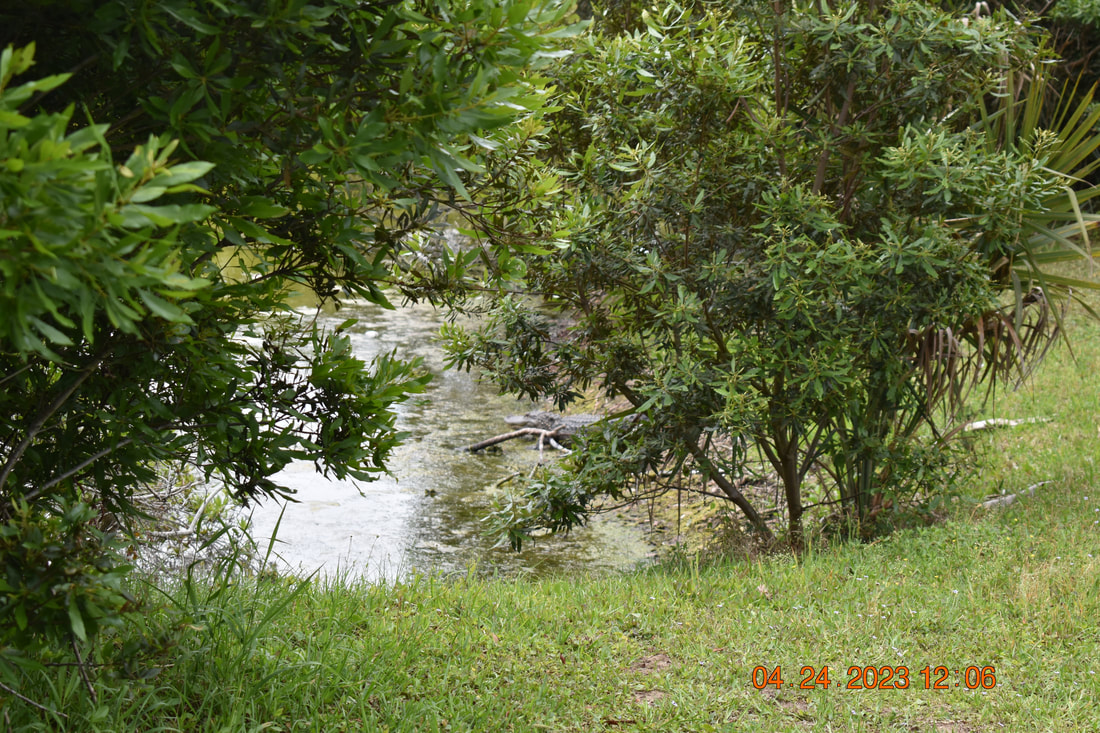Alligator Awareness & Safety
What you need to know about alligatorsWhen are alligators active?
There is no shortage of alligators in the Lowcountry but even more so during the warmer months. They are active year around, but they are most active in the warmer months in parts of South Carolina, especially the Lowcountry. During winter, alligators are more lethargic and do not move as quickly as they do in the spring or summer months. They can be seen more during temperatures ranging from around 82 to 92 degrees. This is when they love to sunbathe and warm up. When is mating season? Mating season begins in April and runs through July with hatchlings appearing around August and September. What to know about this season. During courting, males “bellow” to females and other males in the area. By June, pairs have mated, and females begin building mound nests out of marsh reeds or other vegetation. Sometime during late June or early July, females lay between 20 and 60 eggs. After mating the female alligator begins her nesting. During this period, a female alligator can be more aggressive as she defends the nest against predators throughout the entire incubation period, about 65 days, and longer. When the eggs are ready to hatch, the mother alligator digs into the nest mound, opens any eggs that have not hatched and carries the young down to the water. The hard-shelled, white eggs, the mother alligator lays, are about 3 inches long and resemble goose eggs. Females sometimes aggressively defend their young for more than a year. Alligators communicate through bellowing and slapping their heads against the water. They sound as if they are growling or grumbling loudly when they do communicate or when they are searching for a mate. Alligators sometimes excavate burrows or dens that can damage dikes, levees, and impoundments, and breach fences when they are active. Can you put up a barrier or fence? What can you do? According to the SC DNR, most wetland modifications are unlawful and can be detrimental to other wildlife. Check with appropriate conservation authorities before modifying wetlands. Eliminate emergent vegetation to reduce cover for alligators. Construct trails at least 15 feet from the edge of water. Keep vegetation cut along trails. Where are they most dangerous? Alligators are most dangerous in water or at the edge of water. They occasionally make forays over land in search of new habitat, mates, or prey. Along waterways and lakes, concrete or wooden bulkheads that are at least 3 feet above the high-water mark will discourage alligators from getting to land. Alligators have been documented climbing 5- foot chain-link fences to get at dogs. Angle the top of a fence outward to prevent climbing. All fences should be made with 4-inch mesh, with 2 feet buried into the soil. Alligators have difficulty digging in firm, dry soil but they easily excavate soil that is mucky. In South Carolina, nuisance alligators should be reported to the South Carolina Department of Natural Resources (SCDNR). Licensed trappers have been permitted by the SCDNR to remove and dispatch any alligator who may exhibit aggressiveness, habituated behavior towards humans (most likely from feeding), illness/injury, or inhabit a recreational swimming area. These dinosaur-like creatures, as intriguing as they are, are extremely dangerous and should never be taunted or harassed. In fact, they should be left alone and when encountered, this is when you should reach for your phone and call the SCDNR to report them. |
Call SIPOA for assistance with alligators
Other ResourcesLocal ResourcesOther ResourcesSC DNR ContactIf an alligator is causing problems, contact the nearest SCDNR office. For an after-hours emergency, call Operation Game Thief at (800) 922-5431. To report a nuisance alligator in Berkeley, Charleston and Dorchester counties, Call (843) 953-9856 YouTube Video by Katrina West @KatarinaWestRE
|

